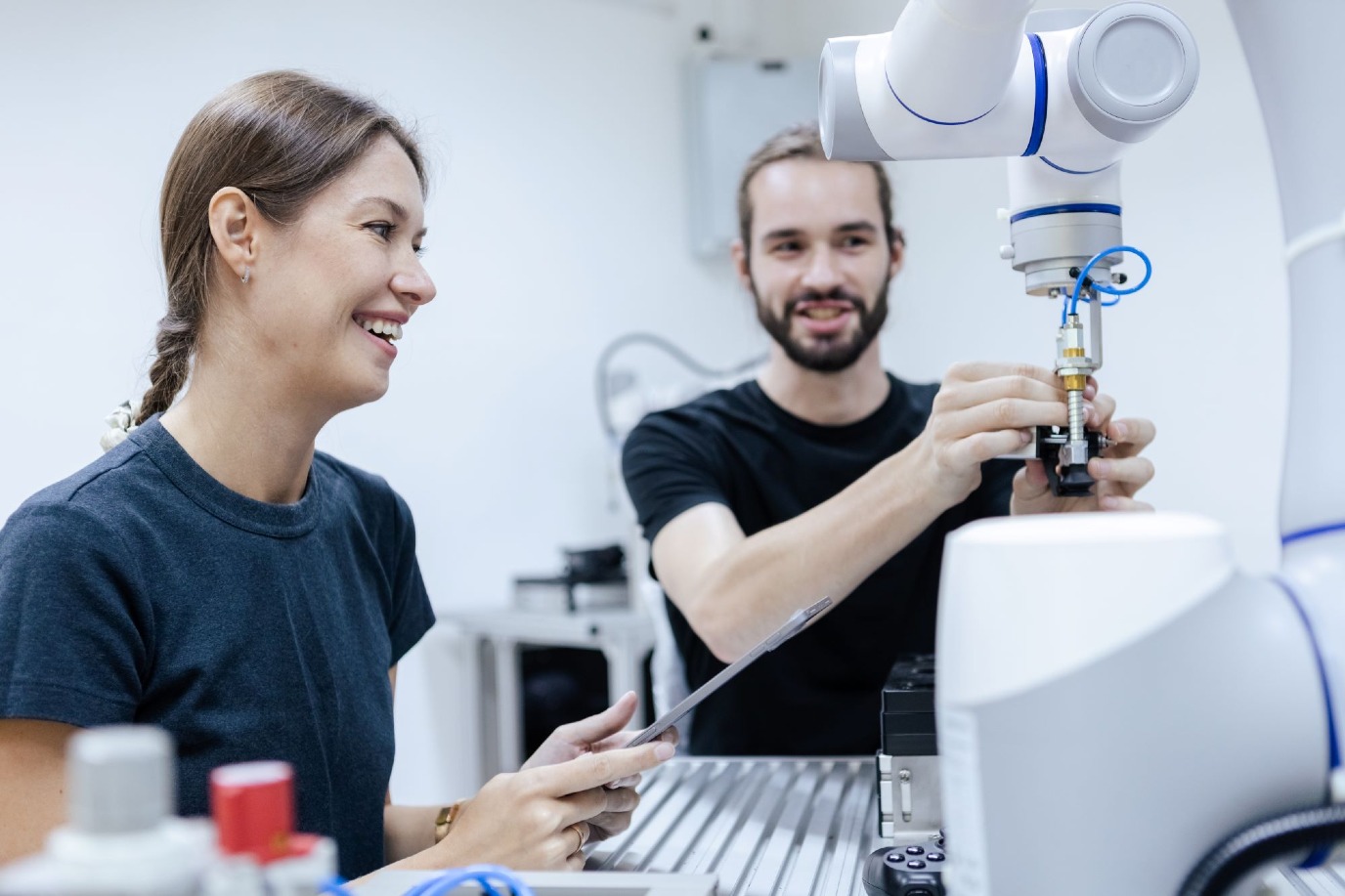1,5 miljoen subsidie van Provincie Groningen voor innovatieve technologie in de regio
De Rijksuniversiteit Groningen ontvangt bijna 1,5 miljoen euro subsidie van de Provincie Groningen om ondernemende academische onderzoekers te begeleiden bij het ontwikkelen van innovatieve ideeën tot een startup. Het 3-jarige pilotproject 'Deep Tech Fellows' is opgezet om een boost te geven aan onder andere de groene chemie, robotica en medische technologie in de regio.
Hoewel in Groningen voldoende potentieel aanwezig is, blijft het aantal succesvolle startups in vergelijking met andere regio's uit. Binnen de pilot krijgen 18 promovendi (PhDs) van de Faculty of Science and Engineering de kans om hun technologische vinding te commercialiseren.

Deeptech
De zogenoemde ‘Deeptech’ startups moeten met nieuwe en geavanceerde technologieën oplossingen bieden voor maatschappelijke uitdagingen op het gebied van klimaat, voeding, veiligheid en gezondheid. Ze ontwikkelen producten of bieden diensten aan voor bijvoorbeeld de energietransitie, mobiliteit, biotechnologie, nanotechnologie, digitale (financiële) platforms, quantum, gezondheidszorg, circulariteit van grondstoffen en producten.
Goed voorbeeld uit Zürich
Kandidaten komen een jaar lang in dienst van de universiteit, krijgen begeleiding en leren over het ondernemerschap. Experts uit het bedrijfsleven, kennisinstellingen en investeerders doen de werving en selectie van de kandidaten. De methode is bedacht naar een succesvol model van de technische universiteit Zürich.
Subsidie nationaal Programma Groningen
De pilot krijgt bijna € 1,5 miljoen subsidie vanuit het Nationaal Programma Groningen. Hiermee kunnen in de komende drie jaar 18 ideeën, met de potentie om uit te groeien tot een bedrijf, worden ondersteund. De pilot moet de toekomstbestendigheid van de economie en de verduurzaming van de industrie in de provincie Groningen versterken.
Lees meer
-
Subsidie voor meer inovatieve technologie in de regio (Provincie Groningen)
Meer nieuws
-
17 februari 2026
De lange zoektocht naar nieuwe fysica
-
10 februari 2026
Waarom slechts een klein aantal planeten geschikt is voor leven
